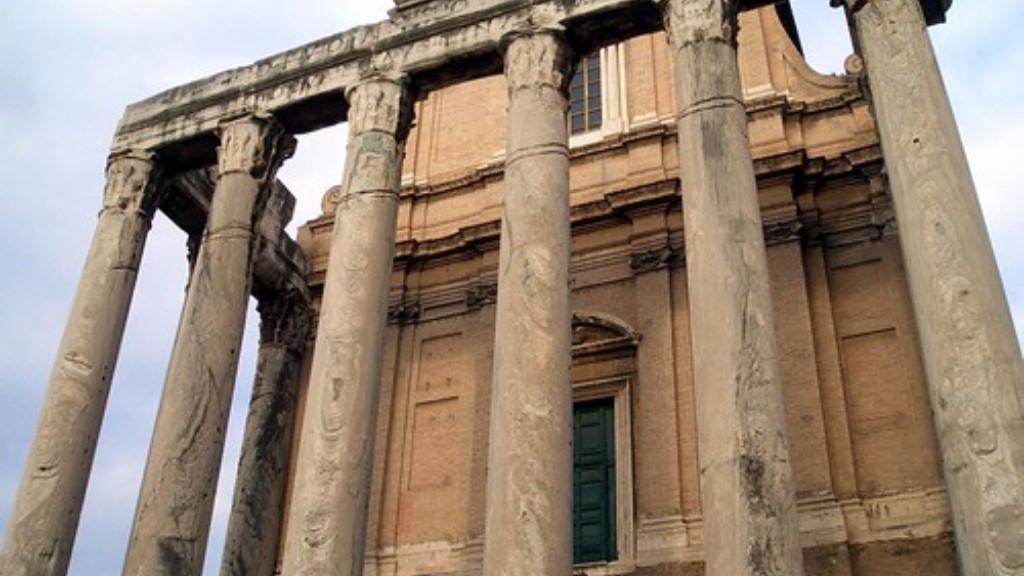The Ancient Romans had a complicated view on homosexuality. The observation that same-sex relations had existed since the dawn of civilization was not lost on them. From the writings of Roman historians and poets like those of Ovid and Catullus, it is evident the Romans had a certain level of acceptance for same-sex relations. On one hand, they were celebrated in literature, whereas on the other, their practice was frowned upon in public and would eventually be criminalized altogether.
It was only under Roman rule that same-sex marriage became legal, although only if it was sanctioned by a magistrate. The Romans also adopted the Greek idea of pederasty in which a young adolescent would be taken in and schooled by an older adult of the same sex. This often took on a erotic bent, although it was not always the case. This arrangement allowed for the tutelage and cultivation of the student in a wide range of subjects.
On the other hand, homosexuality was generally seen as immoral and punishable by law. Roman laws which dealt with same-sex relationships tended to punish the passive partner, usually with flogging. The active partner was usually not subject to any punishment apart from being socially shamed. This attitude was especially common in the more traditional rural parts of the Roman Empire.
Ultimately, the Romans expressed a wide range of attitudes towards homosexuality. While they were more tolerant than some of their predecessors, they were still far from a modern approach which values consent and mutual respect. To this day, it is not immediately clear why the Romans had such an ambivalent view of same-sex relationships.
Effects of Contemporary Media
In the modern era, media such as television and film often heavily influence the popular perception of certain topics such as that of gender and sexuality. Ancient Rome often serves as a backdrop for these tales, including those which feature same-sex relationships. As such, how Roman views are portrayed often shapes modern understanding of their views on homosexuality.
In television shows such as Rome and Spartacus, same-sex relationships are often treated far more sympathetically than what would have been the case in reality. Characters like Atia of the Julii are even depicted as being instrumental in her own same-sex affairs. This misrepresentation of the attitudes of Ancient Romans towards homosexuality might ultimately shape how the general public perceives these attitudes and can thus hamper attempts at understanding the historical context and nuances of this issue.
Although these portrayals are often enjoyable when watched purely for entertainment, they do often leave a false impression that same-sex relations were widely accepted and even tolerated in Ancient Rome. Ultimately, this is a mischaracterization of the actual situation and can skew people’s understanding of this era.
Importance of Study for Modern Times
Historical knowledge is often necessary for understanding the present and the future. As such, the attitude of Ancient Rome towards homosexuality is of great importance. Learning about this topic not only reveals how this institution viewed and treated same-sex relationships but also allows us to understand how the modern world has changed and been shaped by this trend.
Studying the attitude of Ancient Rome towards homosexuality requires a critical eye. This can be achieved by looking carefully at sources such as Roman texts, inscriptions and archaeological evidence. Furthermore, it is also important to account for potential sources of bias, such as the agendas of the author or the general political climate of the time. Once these are accounted for, the true attitude of Ancient Rome towards homosexuality can be more accurately determined.
Attitude of The Modern World
In most countries of the modern world, homosexuality is accepted, legal and even celebrated. This is a much different attitude than that which was generally held by civilizations of the past, such as Ancient Rome. Although same-sex relationships have likely been a part of human culture since the dawn of civilization, it is only recently that they have been widely accepted.
Under Roman rule, same-sex relations were largely seen as immoral and deviant. As such, their practitioners often faced harsh punishment, including flogging and even execution. In comparison, homosexuality is accepted commony in the modern world, with some countries like the Netherlands even allowing same-sex marriage.
As such, it is easy to see how much the world has changed since the days of Ancient Rome. This can be largely attributed to the tireless work of countless dedicated individuals and movements throughout the ages that have advocated for acceptance and tolerance of same-sex relationships.
Psychological and Social Consequences
Although attitudes towards homosexuality have greatly evolved in the modern era, it is not without consequence. The psychological and social trauma which often comes with being discriminated against and made to feel like an outsider can have lasting implications on a person’s health and mental wellbeing.
Studies have shown that people who are made to feel ostracized and judged for their sexual orientation are likely to suffer more from mental health issues, such as anxiety and depression, than those who are not subjected to this kind of discrimination. Thus, the modern attitude towards homosexuality might not be enough to undo the damage caused by centuries of stigma and judgement.
Although great strides have been taken in recent years, it is important to take a step back and recognize that there is still more that could be done to spread acceptance and promote understanding. Taking into account the experience and perspective of those that have been subjected to discrimination is also essential in order to properly address this issue.
Legal Rights and Activism
In order to end the oppressive regimes targeted at same-sex relationships, both legal and social action is needed. In many countries, laws still remain which discriminate and criminalize certain behaviors and identities, such as homosexuality. Advocating for the repeal or amendment of such laws is of paramount importance in the effort to create a world in which everyone is equal and free from judgement regardless of their sexual orientation.
Activism is also a great way to raise awareness and fight against discrimination. Through peaceful protest, social media campaigns and other such efforts, grassroots organizations have been able to draw attention to the plight faced by members of the LGBTQ+ community. Such efforts have been instrumental in changing the attitudes of both governments and citizens, ultimately leading to more inclusion and understanding.
Finally, education is also an extremely effective method of raising awareness. From the works of authors such as Alan Hollinghurst to those of activists like Harvey Milk, there exists a wealth of literature and resources on this subject. Increasing public understanding of the issue can go a long way in creating a more sympathetic and accepting environment.




